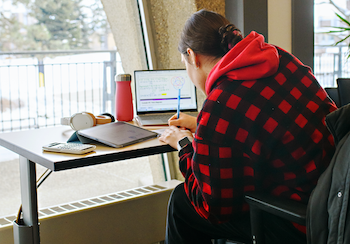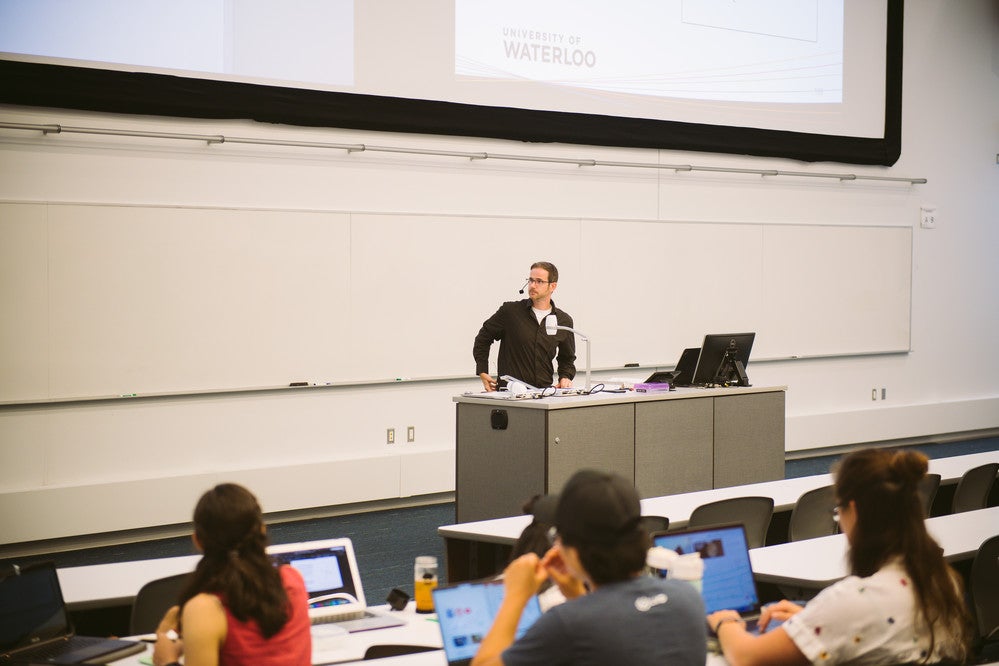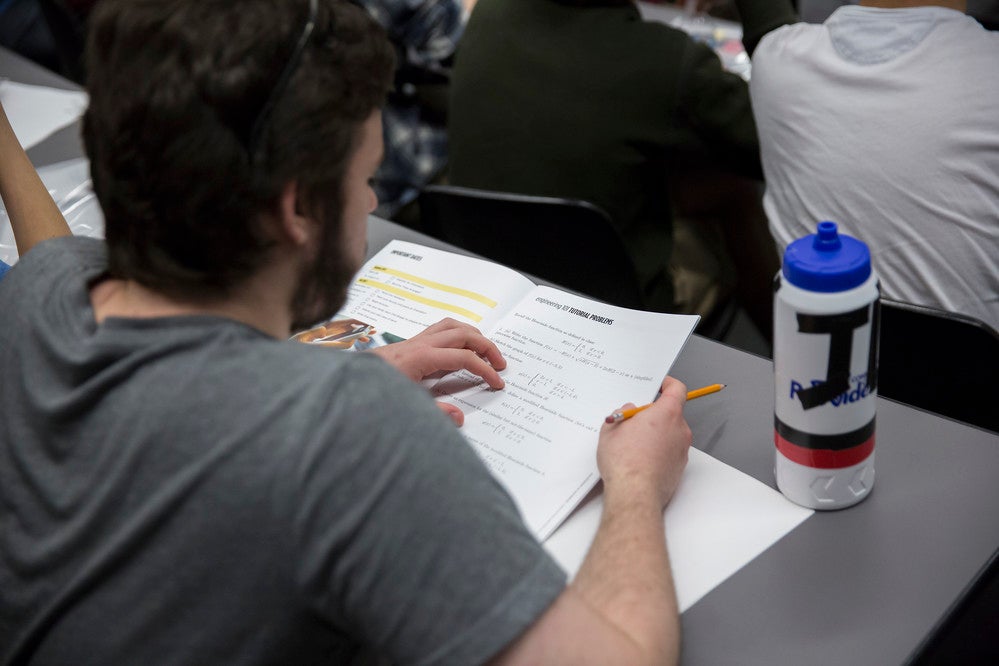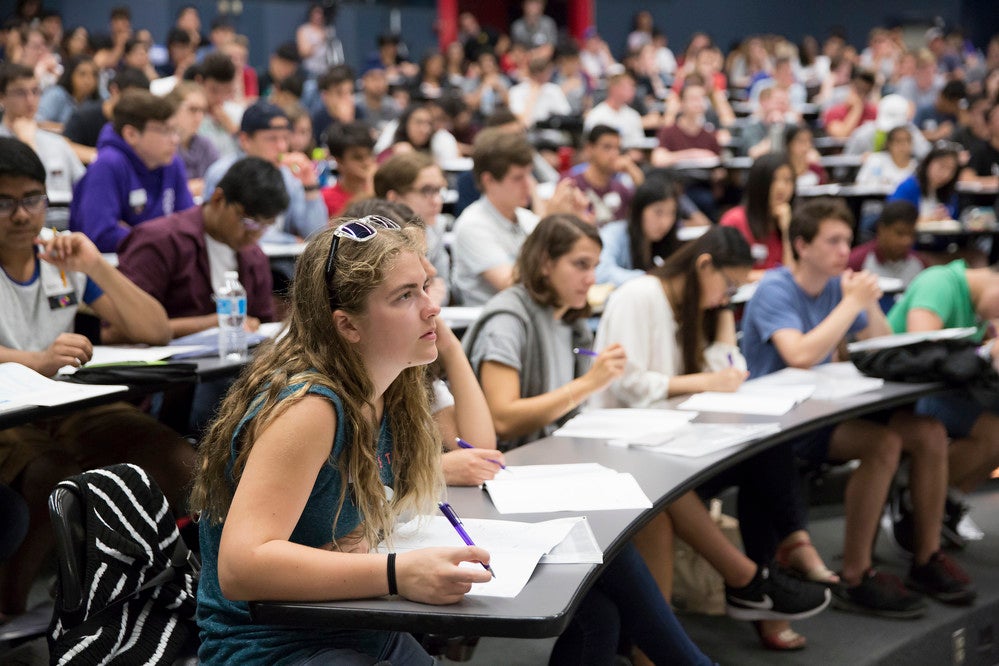We asked students and learning specialists to share their best tips, tricks and tools for university students. Browse through the articles for new strategies and perspective. Use the filters to find content that works for you.
The outline method is one of the most commonly used note-taking methods for university students. In fact, it’s possible you’re already using it!
The outline method is easy to use and adjust for different purposes — taking lectures notes, reading notes and studying.
Are you finding academic readings challenging? Do you feel like you’re not getting the most out of them?
There’s a strategy you can try to help with this. The acronym is SQ3R — it stands for survey, question, read, recite and review. Let’s take a deep dive into each step.
Problem-based questions don’t have to be something you dread on your next exam. The key to working through them is to follow a framework to break them down.
The EPIC approach does this and can be used for a variety of problem-based questions.
Study questions are a great way to help you prepare for an exam or test. They help you review the course material and practice applying it to questions — just like you’ll do during the test.
The key to doing this effectively is to create study questions that force you to use the same skills you’ll use during the exam.
Let’s start by admitting that reading the feedback on an assignment — especially one you don’t think was your best — can be uncomfortable.
Maybe you even avoid checking the comments because you find constructive feedback difficult to hear. That’s completely normal.
Have you ever underestimated the time it takes to complete an assignment or study for an exam? Do you find that no matter how early you start, you don’t have enough time?
Backwards planning can help with this.
Does preparing for a test feel as scary as writing it? Read on.
Have you ever submitted an essay or project that you were so sure would meet your professor’s expectations, only to get it back with lots of notes and a lower grade than you were hoping for?
We’ve all been there. Receiving and reviewing feedback from your teaching assistants (TAs) and instructors is a regular part of the university experience.
Do you feel unmotivated to attend in-person lectures?
Maybe you feel disengaged because you can review the slides on your own or watch the recorded lecture. Or maybe you’re not interested in engaging in class discussions or activities.
If you’re having these feelings, here’s a reminder of some benefits of attending and participating during in-person classes.
Not sure where to start when you’re studying for exams?
Review notes are the answer.
There’s no doubt exams can be stressful, but using this five step process can help you stay calm.
What’s the Cornell note-taking method?
What is a teaching assistant (TA)?
TAs are upper-year or graduate level students that help your professors and instructors with grading, tutorials, exams and more.
Good performance on a test or exam is a combination of knowing the material you’ll be tested on and using your study time well.
To help you prepare for upcoming tests and exams, here are five steps to take.
You may have used a concept map in a class project, or to take notes — but are you using this tool to its full potential?
Concept mapping can help you develop knowledge structures, assess your understanding of content and review for exams.
Deciding between online and in-person classes? The world of university learning has evolved a lot, especially with the rise of online classes during the COVID-19 pandemic.
Both class types have their perks and challenges.
The first day I stepped onto the sprawling university campus, it was an intoxicating blend of excitement, nerves and sheer determination, and I’m sure it's the same for many other first years.
Many of us enter university looking forward to having more independence in choosing our classes, schedules and how we learn.
In high school, independent learning might have looked like personal initiative in managing your assignments. In university, this is only a fraction of the kind of independent learning you will have to do.
Do you have a list of things that you’d like to accomplish by the end of your term? Year? Course? Program?
Having a list of goals is a great way to stay motivated and reflect on what you want to get out of university.
From the structure to format — your schedule should be caterered to what you need it to do to.
That might include keeping track of your schoolwork, job and other things that are important to you.
What does good note-taking for university lectures look like?
There’s more to it than showing up and jotting down a few key phrases from your prof.
Leaving studying to the last minute may seem like a good strategy, but it’s actually easier to prepare for midterms and exams throughout the term.
Follow these three steps to build good habits into your study routine.
Raise your hand if you’ve ever been in a situation where you left studying until right before a test or exam.
Although advised to avoid this strategy at all costs, many students find themselves in a similar situation at least once throughout their studies.
There’s a lot of content in university lectures. It’s important to learn how to take cues to determining what’s important to record in your notes. People don’t instinctively listen well, but it’s a skill that anyone can develop using these steps.
In university, managing your time is knowing your priorities and making sure that the things on your schedule align with your priorities. Planning your activities involves strategy so that you can get the most out of your time. Still not convinced? Here are the top 7 reasons why you should manage your time regularly in university.






























